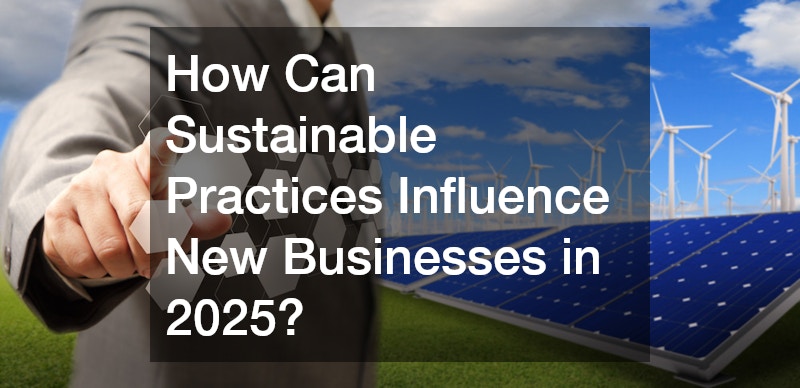The following article explores prominent business themes projected to shape the market in 2025, providing insights and guidance to help Australian entrepreneurs stay competitive in an evolving landscape. By understanding these trends, you can align your strategies and set your business up for long-term success.
1. What Are the Predicted Business Themes for 2025?
1.1 Understanding Market Trends
As we approach 2025, several themes are emerging as key drivers for businesses. From technological innovations to changes in consumer behaviour and global economic dynamics, these trends will influence the way companies operate and grow.
1.2 Emerging Technologies
Technological breakthroughs such as artificial intelligence (AI), quantum computing, and machine learning are reshaping industries. Australian businesses can leverage these advancements to optimise operations, enhance customer experiences, and gain a competitive edge.
1.3 Changes in Consumer Behaviour
Shifting consumer priorities are influencing markets. The demand for sustainability, ethical practices, and personalised experiences is growing, and businesses must adapt to meet these expectations to thrive in the years ahead.
2. How Can Sustainable Practices Influence New Businesses in 2025?

2.1 Green Technologies
Sustainability will be integral to business strategies in 2025. By adopting renewable energy sources and eco-friendly production methods, businesses can appeal to environmentally conscious Australians and comply with local regulations.
2.2 Eco-Friendly Products
Australians increasingly favour products that align with their values. Offering biodegradable packaging, organic materials, or energy-efficient options can help your business stand out. For instance, promoting energy-efficient heating systems through sustainable home services can attract eco-aware homeowners.
2.3 Sustainable Supply Chains
Sustainability in supply chains is becoming a priority. Embracing local sourcing, reducing carbon emissions, and ensuring ethical labour practices can enhance brand trust and resilience.
3. What Role Will Technology Have in Business Themes by 2025?

3.1 Artificial Intelligence and Automation
AI and automation will play pivotal roles in 2025, allowing businesses to enhance efficiency, streamline operations, and provide tailored customer experiences. For example, predictive analytics and AI-powered chatbots can transform customer service in the retail and service sectors.
3.2 Blockchain Applications
Blockchain technology offers secure, transparent solutions for industries like supply chain management and digital transactions. Australian businesses can adopt blockchain to strengthen data security and operational transparency.
3.3 Digital Transformation
Digital transformation will remain essential for staying competitive. Cloud computing, the Internet of Things (IoT), and big data analytics will enable businesses to adapt to market shifts, improve productivity, and deliver superior customer experiences.
4. How Important Is Remote Work in the Business Landscape of 2025?
4.1 Hybrid Work Models
Hybrid work arrangements will dominate by 2025, offering flexibility to employees while ensuring collaboration. Australian businesses adopting such models can improve employee satisfaction and productivity.
4.2 Virtual Collaboration Tools
With virtual reality (VR) and advanced project management tools becoming more common, businesses must invest in reliable digital platforms to support seamless communication in remote environments.
4.3 Enhancing Employee Productivity
Fostering a supportive workplace culture, prioritising work-life balance, and implementing productivity tools will help businesses maximise employee engagement and output in 2025.
5. How Can Businesses Leverage Data Analytics in 2025?
5.1 Customer Insights
Data analytics provides invaluable insights into customer preferences and behaviours. By analysing patterns, Australian businesses can personalise their offerings, creating strategies that drive engagement and loyalty.
5.2 Predictive Analytics
Predictive analytics can help businesses forecast trends and make informed decisions. This reduces risks and uncovers opportunities, giving Australian companies a competitive advantage in dynamic markets.
5.3 Real-Time Data Processing
The ability to process data in real time will become increasingly vital. Businesses equipped with real-time analytics can respond quickly to market changes, improving agility and operational efficiency.
6. What Are the Key Marketing Trends for Businesses in 2025?
6.1 Social Media Marketing
Social media will remain a cornerstone of marketing strategies. Engaging with Australian audiences through authentic, interactive content and collaborations with local influencers will boost brand visibility.
6.2 Influencer Partnerships
Partnering with influencers will continue to be effective for reaching niche markets. These collaborations can enhance brand credibility and connect businesses with targeted Australian demographics.
6.3 Content Personalisation
AI and data analytics enable businesses to create highly personalised content. Tailoring campaigns to resonate with customers’ preferences fosters brand loyalty and drives conversions.
7. How Can Small Businesses Compete in 2025?
7.1 Niche Markets
Focusing on niche markets allows small businesses to address specific needs. By offering unique products or services, Australian businesses can carve out a space in competitive industries.
7.2 Community Engagement
Building connections within local communities will be essential. Participating in community events and supporting local initiatives will help small businesses establish trust and loyalty.
7.3 Innovation and Flexibility
Adaptability is crucial. Embracing emerging technologies and refining strategies based on market feedback will enable small businesses to stay competitive in 2025.
8. What Are the Opportunities for Startups in 2025?
8.1 Funding Opportunities
Startups in Australia can access diverse funding options, including grants, venture capital, and crowdfunding. Adequate financial backing is essential for scaling operations and driving innovation.
8.2 Startup Ecosystems
Thriving startup ecosystems in Australia provide networking opportunities, mentorship programs, and collaborative environments to support entrepreneurial growth.
8.3 Collaborations and Partnerships
Strategic partnerships can open new avenues for startups. Collaborating with established companies or industry peers can unlock resources, technologies, and market access.
9. How Can Businesses Improve Their Customer Experience in 2025?
9.1 Omnichannel Strategies
Integrating online and offline interactions ensures a seamless customer experience. Providing consistency across platforms will strengthen customer satisfaction and loyalty.
9.2 Personalisation Techniques
Personalising interactions based on customer data enhances the overall experience. Utilising AI-driven insights and dynamic content creation can help Australian businesses connect with their audience more effectively.
9.3 Customer Feedback Inclusion
Actively collecting and integrating customer feedback is crucial. Using tools like surveys and sentiment analysis helps businesses align their strategies with customer expectations.
10. What Ethical Considerations Are There for Businesses in 2025?
10.1 Data Privacy
Ensuring compliance with Australia’s privacy laws, such as the Privacy Act, will be essential. Transparent data protection practices build trust and safeguard customer information.
10.2 Corporate Social Responsibility (CSR)
CSR initiatives, such as supporting environmental sustainability and ethical business practices, enhance brand image and foster long-term loyalty.
10.3 Ethical Supply Chains
Promoting ethical supply chains through responsible sourcing and fair trade practices demonstrates commitment to sustainability and social responsibility.
11. What Kind of Business Should You Start?
11.1 Moving Services
With increased urbanisation in Australia, starting a moving company catering to residential and commercial clients can be a lucrative option.
11.2 Eco-Friendly Solutions
Launching services focused on sustainable products or pest control aligned with eco-conscious practices can meet growing consumer demand.
11.3 Specialised Trades
Starting a roofing or HVAC business that emphasises energy-efficient solutions can address Australia’s unique climate challenges while appealing to sustainability-focused customers.
Conclusion
By embracing the business themes of 2025, Australian entrepreneurs can position themselves for long-term success. From leveraging technology to prioritising sustainability and ethical practices, these trends offer numerous opportunities for growth and innovation. Stay informed, proactive, and adaptable to thrive in the dynamic business landscape.
